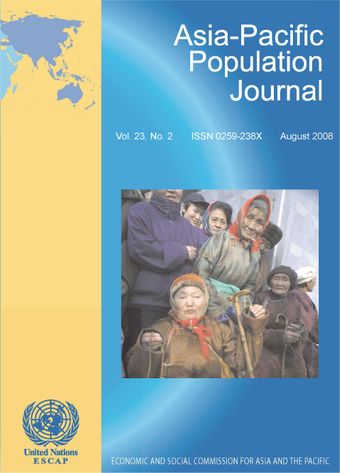-
Dramatic fertility transition in Mongolia and its determinants: The demise of the pronatalist state
- Source: Asia-Pacific Population Journal, Volume 23, Issue 2, Apr 2009, p. 81 - 99
-
- 29 Apr 2009
Abstract
The move from a centrally controlled economy to a market-driven economy has had strong political implications for family planning and fertility in Mongolia. Under socialist rule, Mongolia had a strong pronatalist population policy under which those families having children were provided with generous benefits. The changes made to these policies have had a considerable impact on fertility and family formation in Mongolia. In the mid-1970s, the country started to experience a dramatic decrease in the level of fertility, which intensified when the country moved towards a market economy. The country experienced a drop in its total fertility rate (TFR) from 7.2 children per woman (of reproductive age) in 1975 to about 3 children in 1995, and it has remained constant at about 2.3 children since that time. Relatively few studies have been carried out on fertility changes in Mongolia with explanations about their causes, primarily owing to a lack of data sources.





